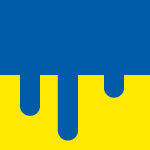05.04.2023 , in ((Creative Knowledge Transfer))
, ((No Comments))
Laure Sandoz and Nicolas Yazgi
 Switzerland has a high foreign population but a restrictive admission policy for non-European nationals, leading to a multi-speed system where some have more opportunities than others. During the participatory theater event “Welcome to Heimatland!” participants got to play the role of migrants arriving in a fictional country and trying to
...
Switzerland has a high foreign population but a restrictive admission policy for non-European nationals, leading to a multi-speed system where some have more opportunities than others. During the participatory theater event “Welcome to Heimatland!” participants got to play the role of migrants arriving in a fictional country and trying to
...
+ Read more
21.03.2023 , in ((COVID-19 + Mobility))
, ((No Comments))
Yossra Kallali and Silindile Nanzile Mlilo
 During the COVID-19 pandemic, governments struggled to respond quickly and efficiently to a changing epidemiological context. To handle crises better, key populations, such as migrants, should be involved in the prevention and intervention strategies. Research on vaccine rollouts in Ethiopia, Tunisia, and South Africa found that civil society groups were
...
During the COVID-19 pandemic, governments struggled to respond quickly and efficiently to a changing epidemiological context. To handle crises better, key populations, such as migrants, should be involved in the prevention and intervention strategies. Research on vaccine rollouts in Ethiopia, Tunisia, and South Africa found that civil society groups were
...
+ Read more
07.12.2022 , in ((Corps et espaces en temps de crises))
, ((No Comments))
Lise Landrin
 Une femme d’affaire qui fait voler une nappe à carreau en plein centre de Grenoble, c’est une scène que l’on pourrait qualifier de drôle, de transgressive ou d’incompréhensible. Une chose fera l’unanimité : ce geste est inattendu. Comment les corps révèlent la ville que nous fabriquons ? Comment la danse,
...
Une femme d’affaire qui fait voler une nappe à carreau en plein centre de Grenoble, c’est une scène que l’on pourrait qualifier de drôle, de transgressive ou d’incompréhensible. Une chose fera l’unanimité : ce geste est inattendu. Comment les corps révèlent la ville que nous fabriquons ? Comment la danse,
...
+ Read more
23.08.2022 , in ((Europe on the Brink))
, ((No Comments))
Kamila Fiałkowska
 It has been a year since the humanitarian crisis began on the Polish-Belarussian border, where a group of Afghan refugees was trapped. After spending several days there, the refugees were pushed back to the Belarusian side by the Polish border guards. Since then, numerous reports of violence towards refugees, but
...
It has been a year since the humanitarian crisis began on the Polish-Belarussian border, where a group of Afghan refugees was trapped. After spending several days there, the refugees were pushed back to the Belarusian side by the Polish border guards. Since then, numerous reports of violence towards refugees, but
...
+ Read more
09.06.2022 , in ((Reflexive Migration Studies))
, ((No Comments))
Halleh Ghorashi
 Since 2015, the study of refugee inclusion has become a booming business. However, research and policies are still quite disconnected from refugees’ lives. Reflective infrastructures can help refugees, other societal actors, and researchers collaborate on knowledge co-creation projects that address refugees’ and migrants’ real-life challenges and question taken-for-granted assumptions. Spaces
...
Since 2015, the study of refugee inclusion has become a booming business. However, research and policies are still quite disconnected from refugees’ lives. Reflective infrastructures can help refugees, other societal actors, and researchers collaborate on knowledge co-creation projects that address refugees’ and migrants’ real-life challenges and question taken-for-granted assumptions. Spaces
...
+ Read more
 Switzerland has a high foreign population but a restrictive admission policy for non-European nationals, leading to a multi-speed system where some have more opportunities than others. During the participatory theater event “Welcome to Heimatland!” participants got to play the role of migrants arriving in a fictional country and trying to
...
Switzerland has a high foreign population but a restrictive admission policy for non-European nationals, leading to a multi-speed system where some have more opportunities than others. During the participatory theater event “Welcome to Heimatland!” participants got to play the role of migrants arriving in a fictional country and trying to
...


 During the COVID-19 pandemic, governments struggled to respond quickly and efficiently to a changing epidemiological context. To handle crises better, key populations, such as migrants, should be involved in the prevention and intervention strategies. Research on vaccine rollouts in Ethiopia, Tunisia, and South Africa found that civil society groups were
...
During the COVID-19 pandemic, governments struggled to respond quickly and efficiently to a changing epidemiological context. To handle crises better, key populations, such as migrants, should be involved in the prevention and intervention strategies. Research on vaccine rollouts in Ethiopia, Tunisia, and South Africa found that civil society groups were
...
 Une femme d’affaire qui fait voler une nappe à carreau en plein centre de Grenoble, c’est une scène que l’on pourrait qualifier de drôle, de transgressive ou d’incompréhensible. Une chose fera l’unanimité : ce geste est inattendu. Comment les corps révèlent la ville que nous fabriquons ? Comment la danse,
...
Une femme d’affaire qui fait voler une nappe à carreau en plein centre de Grenoble, c’est une scène que l’on pourrait qualifier de drôle, de transgressive ou d’incompréhensible. Une chose fera l’unanimité : ce geste est inattendu. Comment les corps révèlent la ville que nous fabriquons ? Comment la danse,
...
 Since 2015, the study of refugee inclusion has become a booming business. However, research and policies are still quite disconnected from refugees’ lives. Reflective infrastructures can help refugees, other societal actors, and researchers collaborate on knowledge co-creation projects that address refugees’ and migrants’ real-life challenges and question taken-for-granted assumptions. Spaces
...
Since 2015, the study of refugee inclusion has become a booming business. However, research and policies are still quite disconnected from refugees’ lives. Reflective infrastructures can help refugees, other societal actors, and researchers collaborate on knowledge co-creation projects that address refugees’ and migrants’ real-life challenges and question taken-for-granted assumptions. Spaces
...